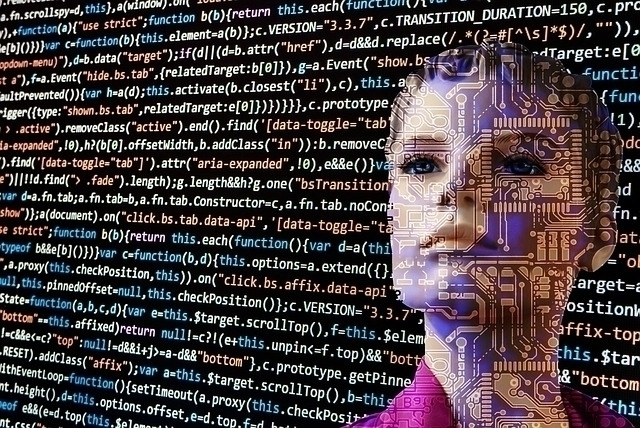Translation software today employ information technology, which,
like any other piece of tech surrounding us today, has a fascinating history.
It is a mix of a plethora of disciplines, which, at first sight, have very
little in common. The history of artificial intelligence, a new subject
clustering a number of sciences together, also has a chapter on Romanian
contribution, which consisted first and foremost in the marriage of linguistics
and mathematics.
Emerged in the United States, computational linguistics is the
successful name of this inter-disciplinary field. It bridges the gap between
language and computer science, studying the connection between natural language
and computer language as artificial intelligence. In the years before the
Second World War, cybernetics was a novel science encouraging the association
between various fields of research. It was the forefather of computational
linguistics. At the end of the 1930s, Ștefan Odobleja was one of the pioneers
of this new field. But after the second world war, when the Soviet occupation
created a new communist regime, the scientific prospects changed for the worse.
In Romania, one of the pathfinders of computational linguistics was
mathematician Solomon Marcus. In a 1998 interview for the Center for Oral
History, Solomon Marcus described how the ideology of the one-party state
shaped scientific research.
Cybernetics was chastised as a bourgeois construct. At the time,
Romania was following Moscow’s orders to a fault. And Russian scientists came
up with a very inspiring idea, to separate certain linguistic research, such as
mathematical linguistics, from the broader umbrella of human sciences. They
associated it to the branch of technological sciences. After a period of
criticism against cybernetics, Moscow changed its attitude, hailing the
technological and scientific revolution. And hence this would become one of the
goals of communist society, achieving a technological and scientific society.
As any other shift of policy adopted by the communist regime,
pragmatism prevailed over ideology. The same happened in Moscow, and Soviet
satellites followed closely in Moscow’s steps. Solomon Marcus:
Obviously, Bucharest too set out to accomplish this objective. It
achieved two things. First, it recognized all mathematical linguistic research,
and second, computation linguistics was associated with the technological and
scientific revolution. Mechanized translations was the goal at the time, and
efforts were made to make this happen. Machines, not people, were meant to do
translations. The issue was key, as both the Russians and the Americans wanted
to be able to swiftly translate texts from English and Russian. Linguistics had
been anathema to Stalin, considering his Marxist views. Yet, all of a sudden, computational
linguistics was no longer stigmatized, being included in the branch of
technological sciences.
The two scientific communities, made up of philologists and
mathematicians, were unenthusiastic about the new discipline. Solomon Marcus:
Rosetti was one of the few philologists who hailed and encouraged
this new type of activity. His peers either ignored the matter or argued
against it. They said it was not linguistics. Professor Emanuel Vasiliu’s
approach to linguistics was quite similar to logic and mathematics.
Mathematicians, on the other hand, believed that mathematics was by tradition
close to mechanics, physics or chemistry, but didn’t overstep the boundaries of
these disciplines. Mathematics being associated with a human science such as
linguistics went very much against tradition. Because of that, a great deal of
mathematicians were very skeptical. They didn’t believe this could work. I
can’t say they took an active stance against it, but they were hesitant. Moisil
was one of the few who were enthusiastic about it. You do realize the luck we
had. Due to their support, we could teach mathematical linguistics at the
University of Bucharest starting with the 1960s.
With a view to researching the new field, Solomon Marcus therefore
got support from some of the most influential mathematicians, like Grigore
Moisil, and from philologists like Alexandru Rosetti. He therefore moved to
implementing the new tendencies in university lectures and published articles.
I was very lucky, because I remembered that Moisil and Rosetti
worked together and militated for the introduction of mathematical linguistics
activities in Romania. They also championed the creation of a mathematical linguistics
university class, and Romania was one of the first countries in the world to
have this discipline taught in universities. Emanuel Vasiliu and I, a
mathematician and a linguist, we had a good start in the field. We also
benefited from certain exchanges with our peers abroad. I had published a
mathematical linguistics handbook at the University of Bucharest in 1963, and
this allowed us to send our papers to various scholars abroad who were pursuing
similar lines of research. The handbook was immediately translated in London,
New York, Moscow, Paris and Prague.
In 1966, Bucharest played host to the International Linguistics
Congress, bringing together a number of prestigious scholars in the field. The
event put Romania on the map of world science and turned computational
linguistics into the most important science that would shape people’s way of
life over the coming decades. (V. Palcu)
